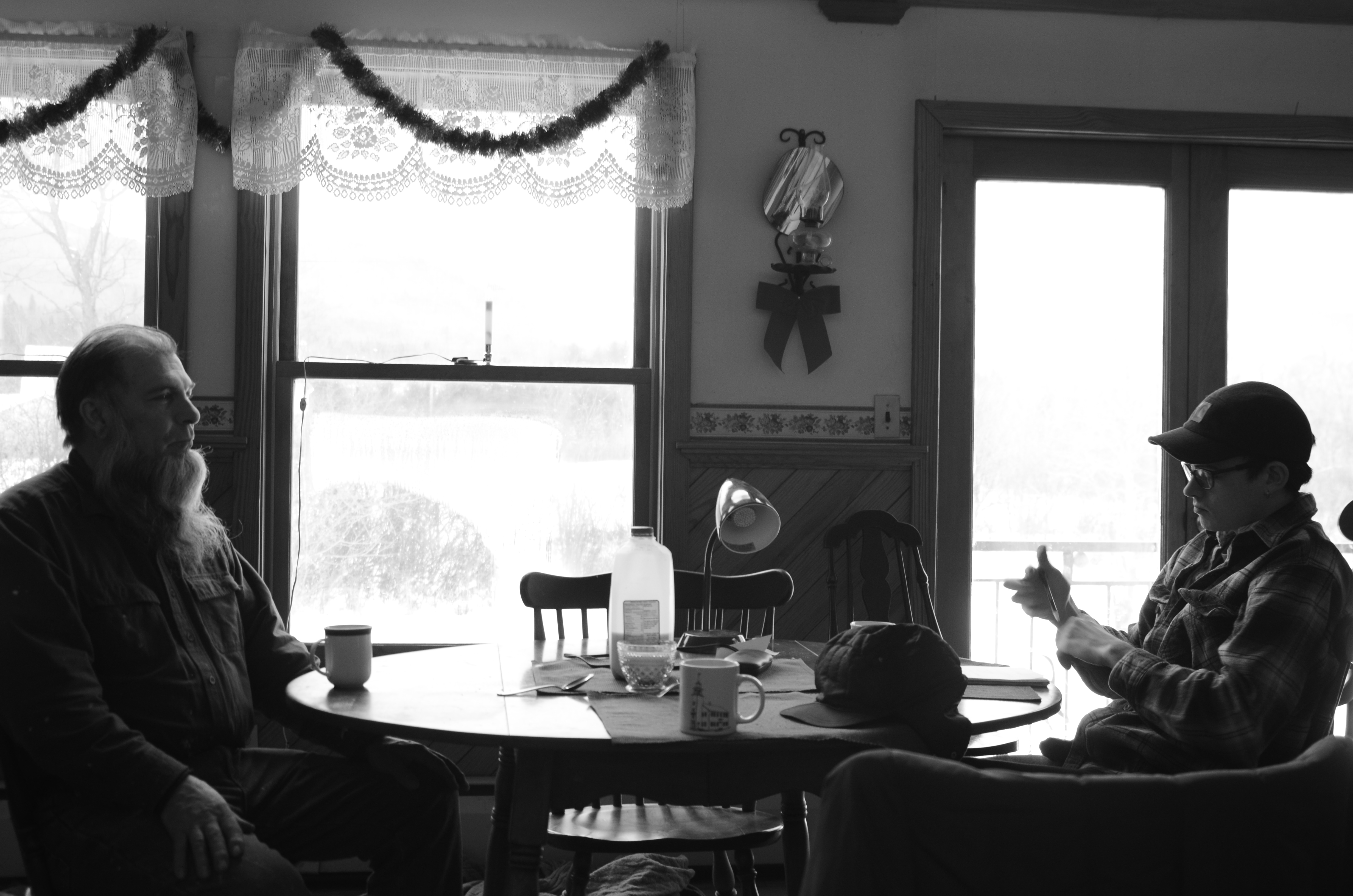Michael Lee-Murphy on New Hampshire's Protest Against Hydro-Québec and Northern Pass

The cover story of our Spring 2014 issue chronicles the development of Quebec’s hydroelectric industry and its impact on rural New England. Reporter Michael Lee-Murphy visited Coos County in rural New Hampshire, where locals are trying to tie up a Hydro-Québec transmission project in red tape. This battle is a complicated twist on the familiar story of environmentalists versus big business—in this case, the big business in question has impressive green credentials. Lee-Murphy's piece was the product of nearly six months of reporting. He spoke with us about the process.
Eric Andrew-Gee: Most people won’t have heard about the Northern Pass—this big hydroelectric transmission project you write about in the piece—or about the resistance to it in New Hampshire. Tell me about how you became interested in the topic.
Michael Lee-Murphy: I grew up in New England, and from early on I had an appreciation of a forest or a field with nothing man-made in it. In college I lived with a few guys from New Hampshire, and my mother moved there a few years back, and so I grew to know the state and its ways, its characters. Northern Pass is a big deal for people there. The very act of people coming together to fight something seems more difficult in rural, sparsely populated environments, so when I read about rural people in Northern New Hampshire fighting this man-made project through a forest, I wanted to find out more.
EA-G: You bring these rural protestors to life so vividly in the story—some of them are such colourful personalities. How did you track them down?
ML-M: The first call I made was to the editor of a small weekly newspaper in the north country. Because the community is so small up there, and so tightly knit, people just put me in touch with one another. The farmer knows the doctor, who knows the reporter and so on. It wasn't all that difficult as people were extremely friendly and eager to talk about the issue.
EA-G: You touch on this in the piece, but why exactly do these people care so much about a couple of transmission towers? What is it about people from the "north country," as they call it?
ML-M: Yeah this was a distinction between northern New England and Canada that became clear to me during the reporting of the piece. In Canada, it’s not at all uncommon to see a massive transmission tower stretching across an open prairie. It seems more of an accepted part of the landscape, because there is so much land. Wilderness is easily found, which some people might call a paradox. But in New England—and maybe this is because the area was colonized slightly earlier—there's just not as much open space left unspoiled, and people want to protect what wilderness is left. In the 1830s, the people living in that area of the North Country actually seceded from the United States for three years, and formed their own republic, called Indian Stream. People up there have always had a bit of a wild, unconquerable streak to them. You might call it New England's “tribal area.”
EA-G: That stubborn streak is part of what makes these people so intriguing, I think. You write about some of their rustic habits in the magazine, but can you briefly describe some of the ways in which northern New Hampshirites have eschewed modern life?
ML-M: Well Dr. Kaufman built his own water line so as that he could drink from a local stream. Allen Holmes has windmills on his house, and solar panels in his yard, and Rod McAllaster farms to support himself. It’s not easy to live in the woods during these winters. My car barely made it up Kaufman's mile-long drive way. These people could easily sell their land, move south and live richer. But that's not important to them. I think their connection to the land itself is what is so old-fashioned or anti-modern about them. I think one can easily look at the example of say, West Virginia, and see what modernity has done to the landscape, to the mountains there.
EA-G: One of the things you see in places like West Virginia—whose transformation into a Republican bastion Evan Osnos wrote about in the New Yorker recently—is the erosion of local government as a check against industrial development, which often leads to chemical spills and strip mining and so on. How has New Hampshire—the most famously libertarian state in America—avoided that fate?
ML-M: Well I think it's a combination of factors. New Hampshire's potential as a resource provider (other than logging and water mills) is relatively new, and the development of resource extraction or the use of New Hampshire in transporting resources is nowhere near as much of an entrenched part of the economy and thus the political system as coal extraction is in West Virginia. Far fewer people in New Hampshire have their livelihoods tied up in the resource economy than in coal country. Coos County is not very wealthy, but New England more generally is comparatively wealthy, so you have more well-funded environmentalist groups taking an interest. (Not as wealthy as Hydro-Québec or Northeast Utilities though). I would say New Hampshire's libertarianism is of an older Yankee variety, rather than the Ron Paul/Koch brothers free market variety. Living free on the land is probably more important than free markets in Coos County.
EA-G: What lessons do you think the broader environmental movement can learn from what's happening in Coos?
ML-M: I think the broader environmental movement is becoming more and more attuned to those projects which portray themselves as green or clean, but are really more complicated than that. It also shows how people between buyers and sellers of energy can actually put up meaningful resistance, that it’s not necessarily at these nodes of capital where the fight always has to take place.
Read Northern Impasse here.





